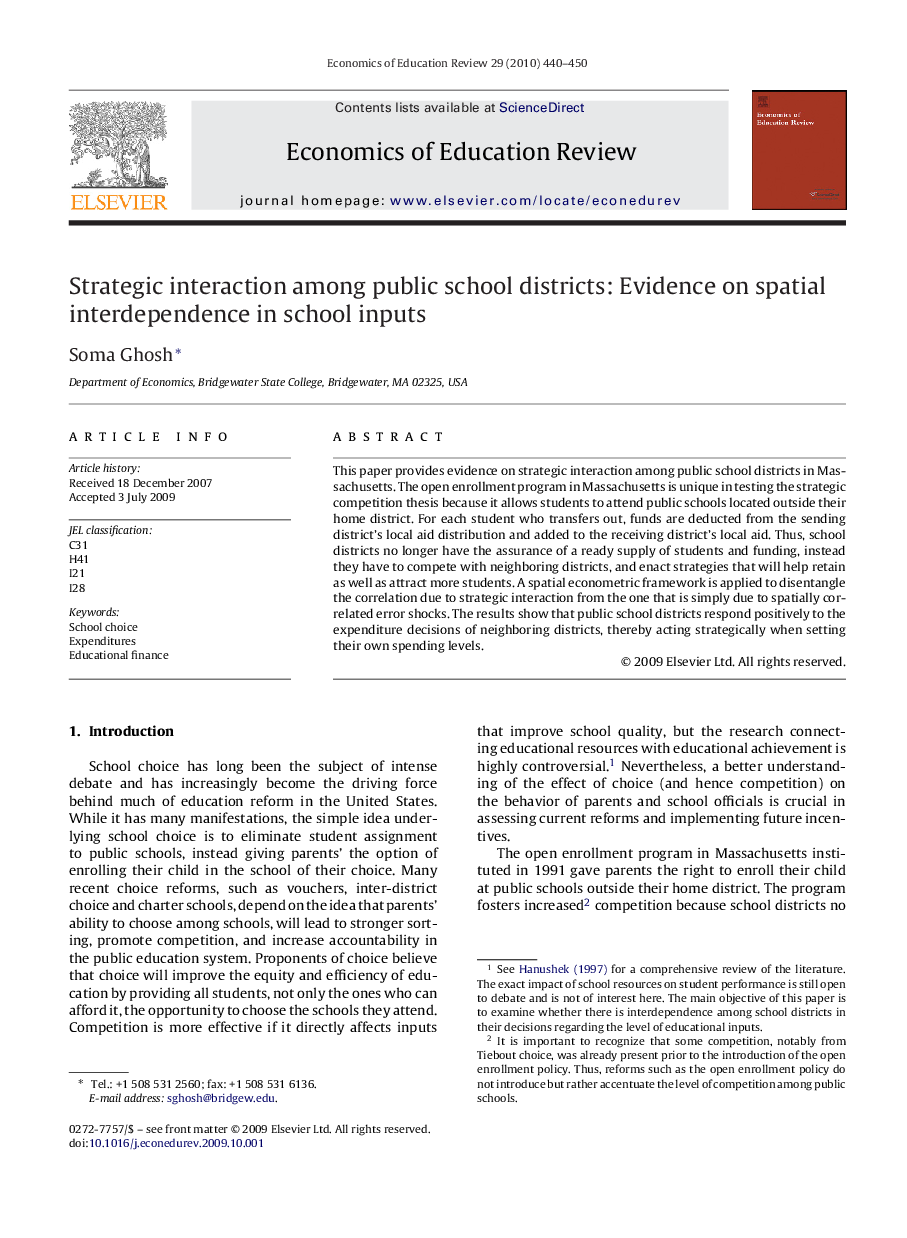| Article ID | Journal | Published Year | Pages | File Type |
|---|---|---|---|---|
| 354832 | Economics of Education Review | 2010 | 11 Pages |
This paper provides evidence on strategic interaction among public school districts in Massachusetts. The open enrollment program in Massachusetts is unique in testing the strategic competition thesis because it allows students to attend public schools located outside their home district. For each student who transfers out, funds are deducted from the sending district's local aid distribution and added to the receiving district's local aid. Thus, school districts no longer have the assurance of a ready supply of students and funding, instead they have to compete with neighboring districts, and enact strategies that will help retain as well as attract more students. A spatial econometric framework is applied to disentangle the correlation due to strategic interaction from the one that is simply due to spatially correlated error shocks. The results show that public school districts respond positively to the expenditure decisions of neighboring districts, thereby acting strategically when setting their own spending levels.
